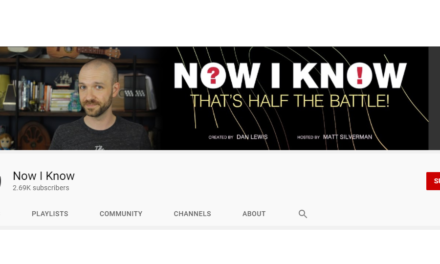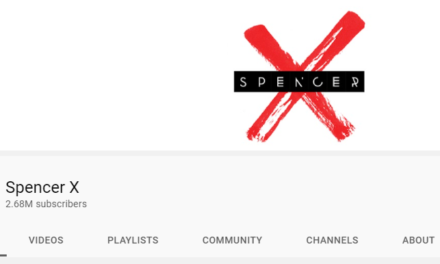Getting an immediate yes to your sponsor deals is great. But in a content business, that’s not usually how it happens.
Negotiations usually ensue. But since you started as a creator, not an entrepreneur, you may not have mastered this skill yet.
So, let’s learn a few things about negotiating. Fortunately, it gets easier (or at least you get more comfortable) the more you do it.
1. Publish a media kit: Be prepared before you arrive at the negotiating table, says Lindsey Chastain, founder of The Writing Detective, an agency specializing in digital marketing and PR.
A media kit can showcase the value you bring to a potential partner by detailing your audience demographics, content samples, testimonials, analytics, etc.
2. Know your worth. Do research to understand better typical rates and arrangements based on your audience size, engagement levels, etc., in your industry. Lindsey says this information can help you understand pricing and deal parameters.
Katie Stoller, an independent consultant who operates the Influencer Inside Guide, agrees. She’s worked on both sides of sponsored content deals, having worked on the brand side at top PR agencies such as Ketchum, Golin, and Olgivy.
“I always tell influencers/talent that they should have a general guideline of what they quote brands for each deliverable they offer,” she says.
3. Know your boundaries: Katie advises entrepreneurs to have stretch goals and bottom lines and flexibility between those two extremes.
“Some talent managers have such strict guidelines against taking lower than expected numbers, but it’s important to see the big picture and see if there are other things you could get from the partnership,” she says.
If the offer is in the standard realm but below your goal, weigh how the brand partnership might have other benefits, such as clout, media attention, relationship-building, portfolio-building, etc.
For example, Katie says, a household brand name like Pepsi might undercharge for a program given a reduced budget, but they might come back in three months with a really solid offer for another program.
“The negotiation song and dance is complex but also extremely simple if you keep those principles in mind,” she says. “The biggest driver of this industry is relationships, so it’s imperative these negotiations are respectful on both ends. Be firm, stand your ground, but do it with respect and transparency.”
4. Talking money: Having and posting standard rates for sponsorship and partnerships isn’t the best strategy for many entrepreneurs.
Negotiating sponsor deals? Be firm and stand your ground but with respect and transparency, says #KatieStoller of Influencer Inside Guide. #ContentEntrepreneur Share on X“I am staunchly against standardization in this industry. Too many factors go into each deal for anything to be standard,” Katie says.
For example, a deal for a reel with Pepsi could include a straightforward brief with “shoot-whatever-you-want” directions. A reel for Coke might include an offsite shoot, five talking points, and a special outfit. All those elements need to play into the pricing.
So, rate cards don’t work well, but you still need a number in mind, as the content entrepreneur usually gives voice to the first number.
But that doesn’t mean you can’t ask questions before you propose the deal.
Lindsey advises entrepreneurs to ask about the brand’s goals for the partnership. Then, tailor your proposal so you can achieve those objectives. Ensure to leave room to be flexible based on their needs and budget. Negotiables could include assets, exclusivity, campaign length, timing, performance bonuses, etc.
Negotiables in content deals include asset, numbers, exclusivity, campaign length, frequency, performance bonuses, etc., says Lindsey Chastain (@WritingDetectiv). #ContentBusiness Share on X“Negotiating allows for customization to meet specific brand needs, showcasing the additional value you can provide, building relationships and trust, and adjusting pricing based on performance,” she says.
Katie doesn’t like it when a creator asks for the brand’s budget. To her, it indicates either they don’t understand that most brand budgets aren’t specific to a single deal or they don’t have a clue on how to price it.
Reputable brands, talent managers, and agencies, she says, will offer more if a creator throws out a price far below industry standards. “I think a lot of talent managers just assume brands are out to get the best deal (and that’s semi-true), but we also want to pay our partners fairly.”
5. Keep an open mind: Even if the distance between your goal and bottom line for deals is short, get OK with negotiating.
Lindsey tried to negotiate a deal for several of her clients with a podcast last week. That creator had set packages and pricing. They wouldn’t negotiate nor provide data to help her clients make an informed decision.
“That podcast lost out on three interviews they really wanted because of their lack of willingness to negotiate or demonstrate their core value,” she says.
Lindsey’s takeaway? “If the proposal provides a high value to your audience, be willing to negotiate,” she says.
Helpful Related Resource: How To Make a Media Kit for Your Content Business
About the author
Ann regularly combines words and strategy for B2B, B2C, and nonprofits, continuing to live up to her high school nickname, Editor Ann. An IABC Communicator of the Year and founder of G Force Communication, Ann coaches and trains professionals in all things content. Connect with her on LinkedIn and Twitter.










